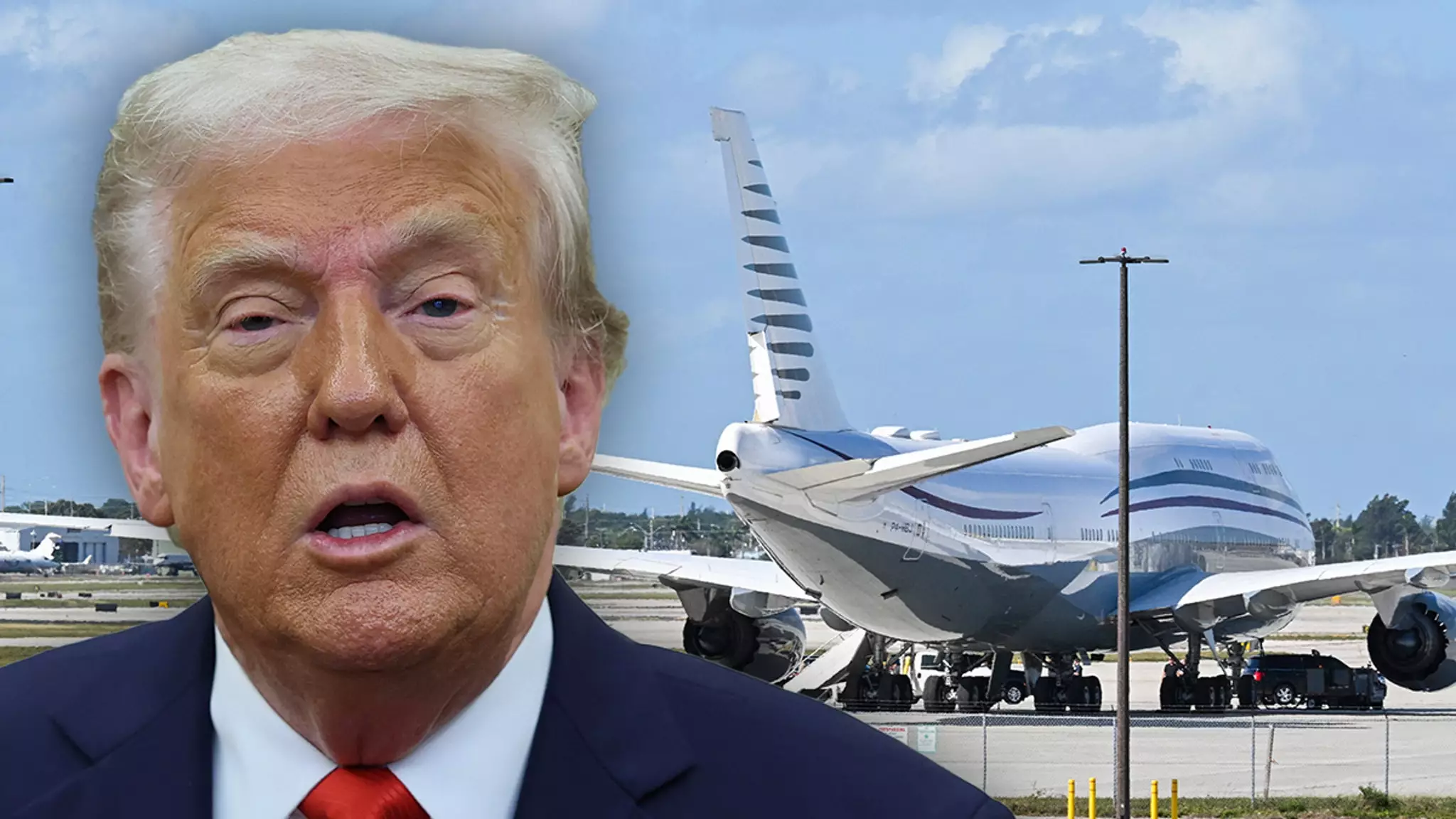The recent news surrounding Donald Trump and his purported acquisition of a lavish Boeing 747-8, often referred to as the “flying palace,” gifted from Qatar’s royal family, brings forth a multitude of concerns regarding ethical governance and the implications of accepting such extravagant gifts from foreign entities. Priced at a staggering $400 million, this airplane is not just a luxury aircraft; it’s potentially a pivotal part of the presidential travel fleet, a notion that raises alarm bells among critics and defenders alike.
The core of the contention lies in the legality and propriety of accepting gifts from foreign powers. Legally, the U.S. government has set stringent guidelines regarding foreign gifts to prevent conflicts of interest and undue influence over American leaders. While Trump, through his social media platform Truth Social, proclaims the gift as a boon for the Defense Department and a replacement for the aging Air Force One, observers are left questioning whether this can truly be perceived as a transparent transaction or a tactical maneuver to bypass constitutional restrictions.
Political Fallout and Public Perception
Trump’s assertion that Democrats are “World Class Losers” for opposing this gift is indicative of his typical confrontational rhetoric. However, the backlash is not merely the result of partisan politics. Critics assert that this situation epitomizes the blurred lines between personal gain and public service, a theme that has dogged Trump throughout his political career. Accepting a gift of this magnitude not only raises suspicions regarding influence peddling but also feeds into broader narratives about the corrosive effects of wealth and power in politics.
Adding layers to this narrative is the context in which this deal is being discussed. Trump’s recent business dealings in Qatar, including a lucrative golf club agreement valued at $5.5 billion involving his son, further complicate the optics surrounding this prospective jet. There’s an undeniable stench of cronyism that permeates the air, raising the question of whether these transactions are simply business as usual or if they signify something more nefarious.
Potential Implications for Governance
The implications of such a transaction stretch far beyond airy political debate; they touch upon the very essence of governance and accountability. While the White House claims that the plane would not directly benefit Trump but rather serve a broader governmental purpose by being transferred to the Defense Department and later to his presidential library foundation, the distinction often feels flimsy at best.
Moreover, the timing of Trump’s planned travel to Qatar acts as a stark reminder of how intertwined business and political realities can become, especially when powerful families can leverage international relationships. This raises significant concerns about the integrity of American political processes and the safeguarding of national interests in a globalized world where relationships can be both a boon and a burden.
In light of these developments, one can’t help but feel a sense of unease regarding the normalization of such extravagant gifts within American politics. There remains a crucial need for transparent and ethical conduct among leaders to uphold the public trust and resist the alluring temptation of opulence that such cases present. The stakes are high, and the American public deserves clarity and integrity from those at the helm of power.

